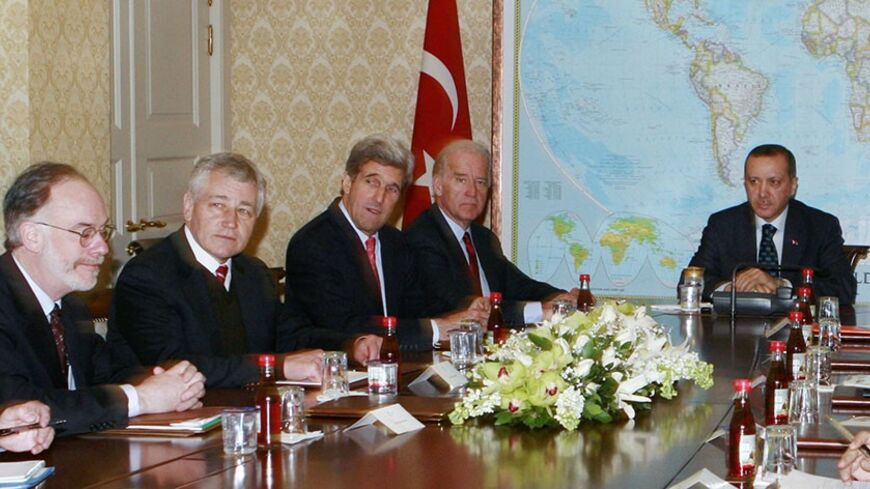WASHINGTON — In the US capital, Turkey is still considered a relatively stable country in its region despite the judicial investigation made public three months ago that has put Turkish Prime Minister Recep Tayyip Erdogan, his family and other members of the Justice and Development Party (AKP) under pressure for alleged direct involvement in a massive corruption and bribery network; despite the government’s unprecedented application of power to prevent a deepening of the graft probe, and despite the endless stream of leaked audio tapes allegedly exposing the government’s murky deals in action.
While there may be concern over the deteriorating rule of law in Turkey and the anti-American narrative recently adopted by Erdogan, events in Turkey are not categorized as a pressing crisis, unlike the situation in Ukraine.



